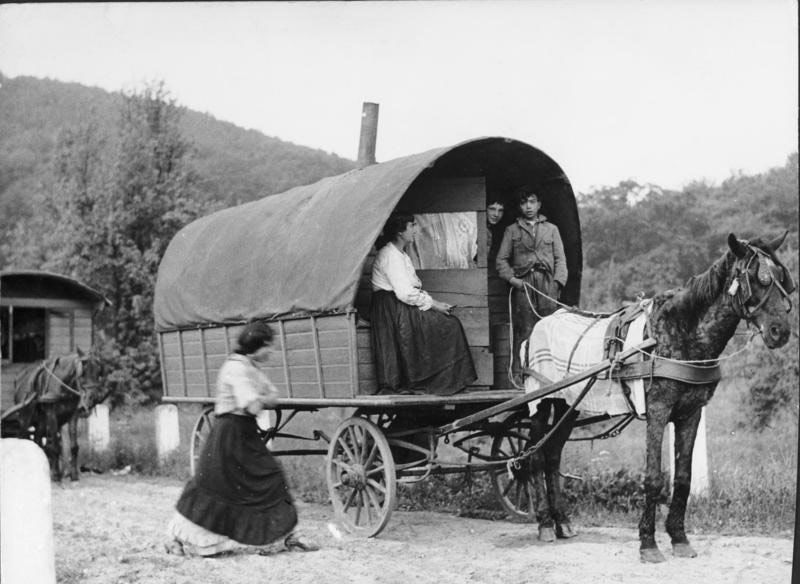There is a great confusion between Roma and Travellers, in German “Fahrende” and in French “Gens du Voyage”. In a strict interpretation, Roma’s origins lie in India and they have kept a unified language (albeit with dialectical variations). Besides them are other groups.
Non-Roma Travellers
Simply be cause they travellers and lived in caravans, several groups of local population have been assimilated to Roma. They are the Jenische of Switzerland, France, Germany and Austria or the Tinkers of Ireland. These groups have no traces of any Indian roots but rather descend from the migrant European stock.

Language
There are Roma groups such as the Cale in Spain who have lost their language, but there are many documents that testify to them still speaking it in the XIXth century. The Bejaša of Hungary and Romania provides another example. It is a Roma group which does not speak Romanes at all but rather an old Romanian dialect. They nevertheless kept literal translation of Romanes in their own language, for example the use of “cigan” as husband and “ciganka” as wife.
Jenische, on the other hand, speak a largely German-based language, which varies from region to region and has a few acquired words of Romanes and mostly of Yiddish ones. Dialectical variations, i.e. the influenced by the local German dialect – Alsatian in France, Southern German Swiss German and Austrian dialects – strongly hints that the Jenische do not have Indian origins. Contacts and inter-marriages certainly have occurred and are still occurring, especially with Sinti in countries such as Switzerland.
The name of Fahrende or Traveller has been the result of a Western European myth, namely that all Rroma were and are nomads. Romanes words pertaining to travels are not of Indian origins but acquired words while the ones referring to villages and village life are, in fact Indian ones. This points out that the nomadic way of life was not the original one for Roma.